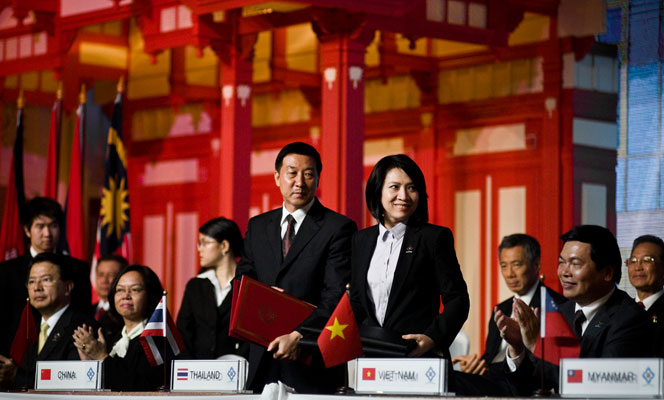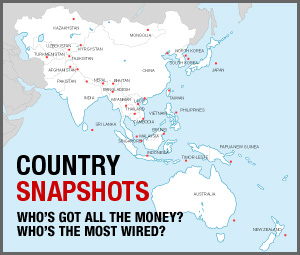ASEAN’s Mixed Bag 
 Image: Thaigov
Image: Thaigov
And at the same time there’s been an even further divergence in political terms since the end of the Cold War. The end of the Cold War allowed some states that were essentially authoritarian, communist states, to be brought in and also a military dictatorship in the form of Burma. So on the one hand you have non-democratic states being brought into ASEAN, while at the other end of the scale you have a process of democratisation taking hold just over a decade ago in Indonesia. So Southeast Asia’s largest–and by many measures most important–state, Indonesia, has become democratic. In fact I think it’s surprised many people the extent to which the democratic experiment has worked in Indonesia. Indonesia in the past was the low-key leader, but now it’s providing a different sort of leadership and actually it’s non-state groups and advocates of democracy and human rights who are prominent in Indonesia and are beginning to influence thinking about its role in the region. But you then have real tensions emerging in ASEAN between on the democratic impulse and the other regimes that wish to hang on to state power and repudiate any democratic impulse on the part of their own citizens.
One of the arguments behind having Burma as part of the club has been that ASEAN membership could help moderate its behaviour. Has ASEAN had any influence at all on this?
If anything I think you could point to that as ASEAN’s signal failure over the last 20 years. In the first place, to admit Burma to membership of ASEAN was perhaps a brave move. But you could also condemn it in retrospect as a rash move in that it brought into the group a regime that was clearly obdurate in the face of Western objections, and which has increasingly become subject to Western sanctions and increasingly become an embarrassment to ASEAN. ASEAN does not seem to have been able to influence the thinking of the regime to any significant effect. At the moment, of course, there’s a political process in Burma which is leading to elections next year. However, I don’t think there is any expectation that this is any more than a gesture to those that oppose the regime, both domestically and regionally. I don’t think many analysts really expect this to lead to democracy in Burma, except in the very long term.
In East Asia the US is seen by allies such as Japan and South Korea as a useful counterweight to China. You’ve said that broadly speaking, ASEAN doesn’t view China as a threat. How does it view the US in general?
It depends on the government in question. The United States does have two formal allies in Southeast Asia, Thailand and the Philippines who are treaty partners, but it also has an important security partner in Singapore, which is an ally in all but name. And also there are other states in the region that have various degrees of security relations with the United States, including Malaysia, Brunei, Indonesia, Cambodia–they all conduct military exercises and exchanges with the United States. I think the point about their attitude to the United States is that virtually all Southeast Asian states see the United States as a useful regional balancer and that they would be alarmed if the United States were to cease its regional security role, which isn’t in prospect anyway. But by and large they all want to encourage the United States to stay involved in regional security. The region would look much more complicated from their point of view if the United States wasn’t there, and they would feel much more exposed to China’s power as she expands economically and becomes more confident diplomatically, and even militarily and strategically. So I think it’s really in most countries’ interests that the United States stays involved.
Tim Huxley is Executive Director of the International Institute for Strategic Studies-Asia in Singapore.










